Hawaii is a deeply spiritual place where worries come to melt away in tropical landscapes. It's easy to get lost in the beauty of a waterfall, swimming next to a sea turtle or watching a warm sunset. Island time means that you're never in a hurry and free from rushed anxiety. And the Aloha spirit means locals are ready with a smile, a story, and a helping hand.
Aloha is famous. With nearly 10 million visitors per year, the Hawaiian term has spread all over the world. But there is another spiritual Hawaiian word that pervades life on each and every island. You may not even know about it. It's a powerful concept that brings people together to live in harmony, and everyone can connect with the idea worldwide.
The word is "Ohana."
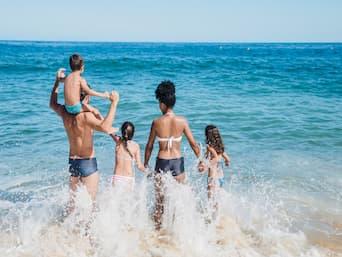 You may have heard the word in passing right when you landed. A person may have placed a lei around your neck at the airport to tell you that you are now a part of the Ohana. You are now a part of the family.
You may have heard the word in passing right when you landed. A person may have placed a lei around your neck at the airport to tell you that you are now a part of the Ohana. You are now a part of the family.
The Hawaiian Family
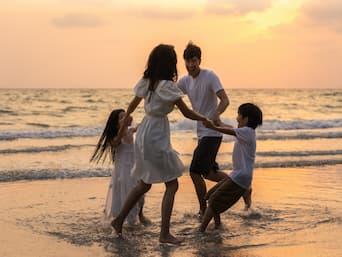 The family structure works a bit differently out on the Hawaiian Islands. On the mainland, you might have a mother, father, and children living under the same roof. The children then grow up, go off to college and get a job to move out of the house. The parents then downsize their house for retirement while the children raise families of their own in a separate household. The cycle then repeats.
The family structure works a bit differently out on the Hawaiian Islands. On the mainland, you might have a mother, father, and children living under the same roof. The children then grow up, go off to college and get a job to move out of the house. The parents then downsize their house for retirement while the children raise families of their own in a separate household. The cycle then repeats.
This is not how it works in Hawaii. Many generations of a single-family live under one roof. It's not uncommon for grandparents, aunts, uncles, parents, and children to live together. The children may go off to school, but it's expected that they'll come back to the house after graduation. The children even get married and to have children of their own while living in the family house, and Hawaiian youth tend to get married early as they are eager to contribute to the growing Ohana.
This is a social custom in Hawaii, but part of it is economically driven. It can be expensive to live on the islands. Locals pay a premium for electricity, gas, and food, so living together is a financial strategy to mitigate the burden of costs. Hawaiian real estate is also at a premium. Families tend to root down on one good piece of land.
Aunty and Uncle
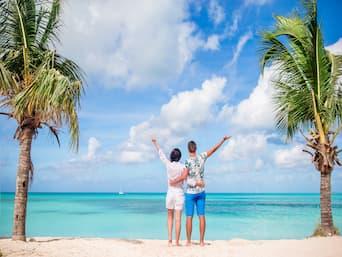 You may have noticed that locals speak a slightly different version of English called Hawaiian Pidgin. If you listen really closely, you can hear some familiar words like "Bruddah," or brother. Those same Pidgin-speaking locals will speak to you in English, and they'll often use the terms "Aunty" and "Uncle."
You may have noticed that locals speak a slightly different version of English called Hawaiian Pidgin. If you listen really closely, you can hear some familiar words like "Bruddah," or brother. Those same Pidgin-speaking locals will speak to you in English, and they'll often use the terms "Aunty" and "Uncle."
Locals use the words, Aunty and Uncle, to refer to just about everyone. They don't need to actually be an aunt or an uncle which goes back to the idea of Ohana. Child-rearing is a group responsibility with such large families living under one roof. Cousins, older siblings, and even unrelated friends can be an Aunty or an Uncle within the family.
The terms Aunty and Uncle can even be used for complete strangers on the islands. This is an extension of Ohana as it takes an entire island to raise a child. Essentially, everyone on the island is a part of your Ohana or family, so you should treat one another with respect.
Daily Cookouts
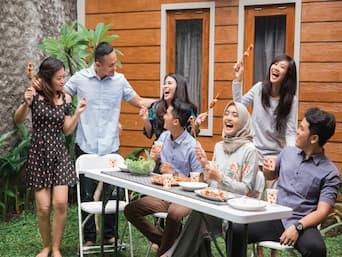 You might notice large groups of people standing around an open garage. The garage is full of tables that are covered in food as the Ohana sits around the yard chowing down. It's a common sight on the Hawaiian islands, but it doesn't necessarily mean that there’s a special event.
You might notice large groups of people standing around an open garage. The garage is full of tables that are covered in food as the Ohana sits around the yard chowing down. It's a common sight on the Hawaiian islands, but it doesn't necessarily mean that there’s a special event.
This is simply a part of the celebration of Ohana. Large families may have near-nightly cookouts to feed the entire clan, and, if you make friends with a local, you might be invited to enjoy a luau-like spread at someone’s house.
The Concept of Modern Ohana
Ah, the Hawaiian Ohana! Think of it like a big, warm hug from the islands themselves. It's not just about whoyou're related to; it's about who you relate with.
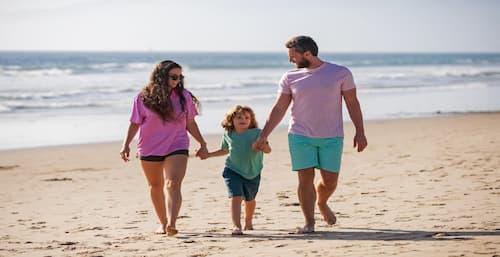
- Ohana is More Than Family: Picture this: you're walking down a sun-kissed beach, and a local calls out "Aloha!" with a smile. That's Ohana in action. It's friends, neighbors, and yes, even you, the visitor. From the moment your feet touch Hawaiian soil, you're part of this big, island family.
- Values as Bright as the Hawaiian Sun: So, what makes Ohana tick? It's a beautiful mix of loyalty, like the steadfastness of Mauna Kea; support, as comforting as the gentle waves of Waikiki; compassion, deep as the Pacific; and love, as warm as the Hawaiian sunsets. These aren't just words; they're the spirit of the islands, woven into every interaction.
- The Honor of Ohana: Getting invited into an Ohana? That's big. It's like being given a key to the heart of Hawaii. But remember, with great leis come great responsibility. It means you care for the islands as if they were your own – protecting its beauty, respecting its traditions, and sharing its Aloha spirit.
Ohana is Hawaii's open invitation to be part of something bigger. Whether you're sharing a plate of poke or watching hula dancers under the moonlight, you're experiencing the true heart of the islands. And who knows? The Aloha you give might just echo back to you in ways you never imagined. So, dive into this island adventure with an open heart, and let Ohana show you the real Hawaii.
Ohana and Respect for the Environment
When you're in Hawaii, you're not just a visitor; you're part of the Ohana, and that means looking after our beautiful island home. Here's how you can show your respect for Hawaii's natural beauty and resources: 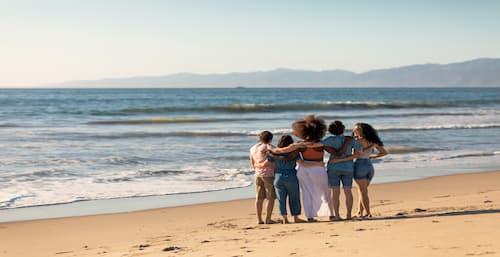
- Leave Only Footprints, Take Only Memories: Ever heard this saying? It's like the golden rule of island visits. Make sure to keep the beaches as pristine as you found them. That means no littering – not even a tiny piece of trash. Think of the sands of Lanikai Beach; let's keep them sparkling!
- Be a Wildlife Whisperer: Hawaii is teeming with incredible creatures, from honu (green sea turtles) to colorful reef fish. When you spot these beauties, remember to admire from a distance. It's their home, and we're just guests. So, no touching or feeding the wildlife. It's all about watching with aloha!
- Trail Treasures: There's magic in Hawaii's trails, from the lush paths of Manoa Valley to the heights of Diamond Head. Stick to the marked trails to keep the environment safe and sound. Plus, you'll avoid getting lost – a bonus!
- Fish Like a Local: If fishing is on your agenda, do it the Hawaiian way. That means fishing for your meal, not just for sport. The ocean isn't just beautiful; it's a source of life. Let's keep it thriving for generations to come.
- Join the Green Team: Ever heard of reef-safe sunscreen? It's a thing, and it's a big deal here. Regular sunscreen can harm our reefs, so pick up a bottle of the eco-friendly stuff. Your skin gets protected, and so does our underwater world.
- Ride the Eco-Wave: Whether it's saying no to a plastic straw or choosing a bicycle over a car for short trips, every little bit helps. Hawaii's beauty is timeless, but only if we all chip in to protect it.
Remember, respecting Hawaii is part of being Ohana. Every step you take to preserve the environment is a step towards keeping Hawaii's magic alive. So, let's make your Hawaiian journey one that Mother Nature would be proud of!
Engaging Respectfully with Local Communities
Here's how you can dive into the local scene and show your respect for our vibrant communities:
- Jump into Local Events: Hawaii is always buzzing with events, from the Aloha Festivals to local farmers' markets. Joining these events is like opening a window to the heart of Hawaii. You'll experience the real island culture, meet the locals, and hey, maybe even learn to hula!
- Speak the Language of Aloha: Picking up a few Hawaiian phrases isn't just fun; it's a sign of respect. Start with the basics: "Aloha" for hello and goodbye, "Mahalo" for thank you. It's a small gesture that says, "I appreciate and honor your culture." And who knows, it might just bring a smile to a local's face!
- Shop Small, Impact Big: Small businesses are the backbone of Hawaiian communities. By shopping at local stores, you're not just getting unique, authentic souvenirs; you're supporting Hawaiian families and their dreams. Plus, you'll find treasures no big store can offer!
- Eat Like a Local: Forget the big chains; dive into local eateries. Whether it's a plate lunch from a roadside stand or a farm-to-table experience, you're tasting Hawaii's rich culinary heritage. And the best part? You're fueling the local economy.
- Respect the Customs: Hawaii is a melting pot of traditions. Understanding and respecting local customs, like taking off your shoes before entering a home, is key. It's about showing that you care about the island's ways, just as much as its beaches.
- Preserving Paradise: Your visit can contribute to cultural preservation. Whether it's participating in a beach clean-up or learning about native Hawaiian history, every act of respect helps keep Hawaii's culture thriving.
Remember, when you engage with the community, you're not just a tourist; you're part of Hawaii's global Ohana. So, embrace every moment, respect the culture, and leave the islands a little better than you found them. That's the true Hawaiian way!
Embracing Ohana Values in Tourism
Welcome to the Hawaiian Islands, where the spirit of 'Ohana weaves through every palm tree and sandy shore! As a visitor to this Polynesian paradise, embracing the concept of Ohana can transform your trip into deeply meaningful experience.
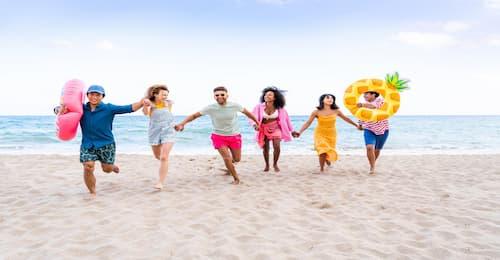
- Unity and Belonging, Island Style: In Hawaiian society, the idea of Ohana means much more than family ties. It's a feeling that nobody gets left behind or forgotten. Whether you're a local or a tourist, in Hawaii, you're part of one big family. This unity is the essence of the Aloha spirit, making the Hawaiian way of life something truly special.
- Being Part of the Ohana: How can you, as a traveler, embody this beautiful concept? It's simple – show love and respect to everyone you meet. From the lei seller at the market to the keiki (children) playing on the beach, every interaction is a chance to spread Aloha. Remember, in Hawaii, everyone looks out for one another, and you're invited to do the same!
- Mahalo – More Than Just a Word: Saying "Mahalo" (thank you) isn't just good manners; it's a way of acknowledging and appreciating the local culture. It's a small word that carries a lot of weight in showing respect for the Hawaiian people and their traditions.
- Support and Understanding, Island-Style: Whether you're learning about the significance of the taro plant or listening to stories of ancient Hawaiians, showing interest and understanding of Hawaiian culture is key. Support local artisans, respect sacred sites, and immerse yourself in the rich tapestry of native Hawaiian culture.
- Strong Bonds Beyond Blood: The Hawaiian concept of family extends beyond blood-related or nuclear family. It encompasses extended families, friends, and even visitors like you. By embracing this extended sense of family, you become part of a community that cherishes supporting and caring for one another.
Remember, in Hawaii, the concept of Ohana and the Aloha spirit are not just tourist attractions; they are a way of life. As you explore these enchanting islands, let these values guide your journey. Your actions and interactions can help ensure that the spirit of family and community remains vibrant across the islands. So, dive in, embrace the local culture, and let the spirit of Ohana enrich your Hawaiian adventure!
Practical Application of Ohana for Tourists
As you continue your Hawaiian journey, let's delve deeper into how you can actively engage with the Ohana spirit, enriching both your experience and the vibrant island community you're visiting: 
- Respect the Rich Hawaiian Traditions: Hawaiian culture is a tapestry woven from ancient traditions. When you participate in local customs – be it a luau or a lei-making workshop – you're not just having fun, you're honoring centuries of history. Remember, when you're here, you're not just a visitor; you're part of a family that spans across the islands of Hawaii.
- Choose Local, Choose Aloha: Every time you buy a souvenir from a local craftsperson, or savor a meal at a family-owned eatery, you're doing more than just shopping or dining. You're supporting the Hawaiian families and helping preserve the unique local culture. Your conscious consumer choices spread the spirit of Ohana, showing that you care for the community like family.
- Belong, No Matter Where You're From: In Hawaii, the idea of Ohana means everyone looks out for one another. Strike up a conversation with the person next to you on the beach, share stories with local fishermen, or join in a community beach clean-up. These small acts create strong bonds, fostering a sense of belonging and showing that family in Hawaii goes beyond being related by blood.
- Mahalo, More Than Just Thanks: Use "Mahalo" not just as a thank you but as a way of showing gratitude for the Hawaiian way of life. From the sacred taro plant to the playful hula dance, every aspect of Hawaiian life is an opportunity to learn and appreciate. So, say Mahalo with sincerity, and watch the Aloha spirit grow.
- Embrace the Ohana in Every Experience: Whether you're watching the sunset over Waikiki Beach or exploring the lush trails of Kauai, remember that you're experiencing the love and care of generations of Hawaiians who have nurtured these islands. Treat each experience with respect and cherish it as a precious family memory.
Living the Ohana way means embracing the Hawaiian values of love, support, and mutual care. It's about feeling connected to the land, the culture, and the people. So, as you explore the beauty of the Hawaiian Islands, let the spirit of Ohana guide you, and take home memories that resonate with the true essence of Hawaii.
Leaving a Positive Impact
As your Hawaiian adventure comes to a close, it's time to reflect on the footprints you leave behind on these enchanting islands. The essence of Ohana and Aloha isn't just in the warm welcomes or the breathtaking sunsets; it's in the lasting impact that you, as a visitor, have on the Hawaiian community and environment. 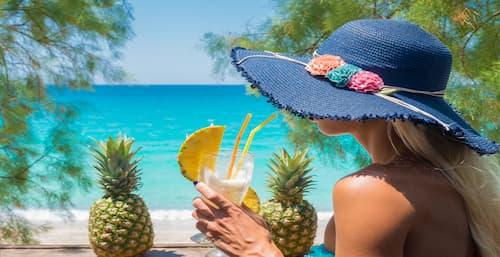
- Your Actions Matter: Every choice you've made, from supporting local businesses to respecting sacred sites, has contributed to the well-being of the Hawaiian islands. It's these small actions, done with a big heart, that keep the spirit of Ohana thriving.
- Carry the Aloha Spirit Home: As you pack your bags, remember to pack the Aloha spirit too. Share the stories of the people you've met, the beauty you've witnessed, and the culture you've embraced. Let your journey inspire others to travel with sensitivity and respect.
- Leave More Than Just Footprints: The islands have given you memories to last a lifetime. In return, leave a legacy of care and respect. Whether it's through an eco-friendly lifestyle, continued support of Hawaiian products, or spreading awareness about the islands' unique culture, your actions can resonate far beyond your stay.
Remember, in Hawaii, you're more than just a visitor; you're part of a larger family, a global Ohana. As you say "Mahalo" and bid farewell to these shores, take pride in knowing that your visit wasn't just a getaway, but a meaningful exchange that honored the true values of Hawaii.
A hui hou (until we meet again), dear traveler. May the Aloha spirit guide you wherever you go, and may your journey through life reflect the love and respect you've shown these islands.